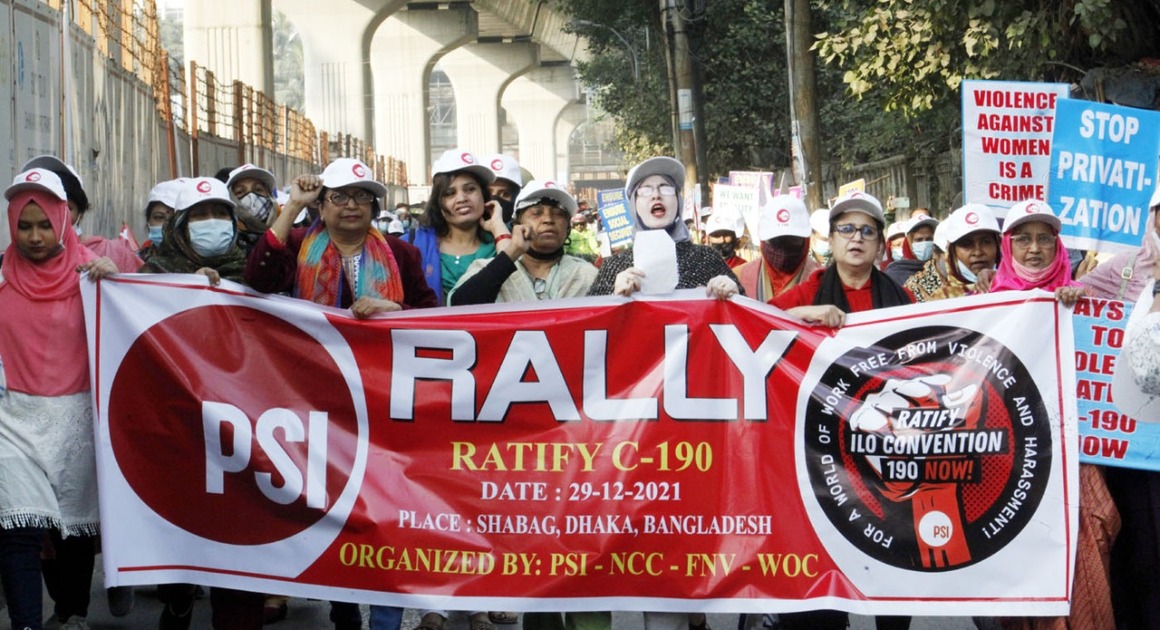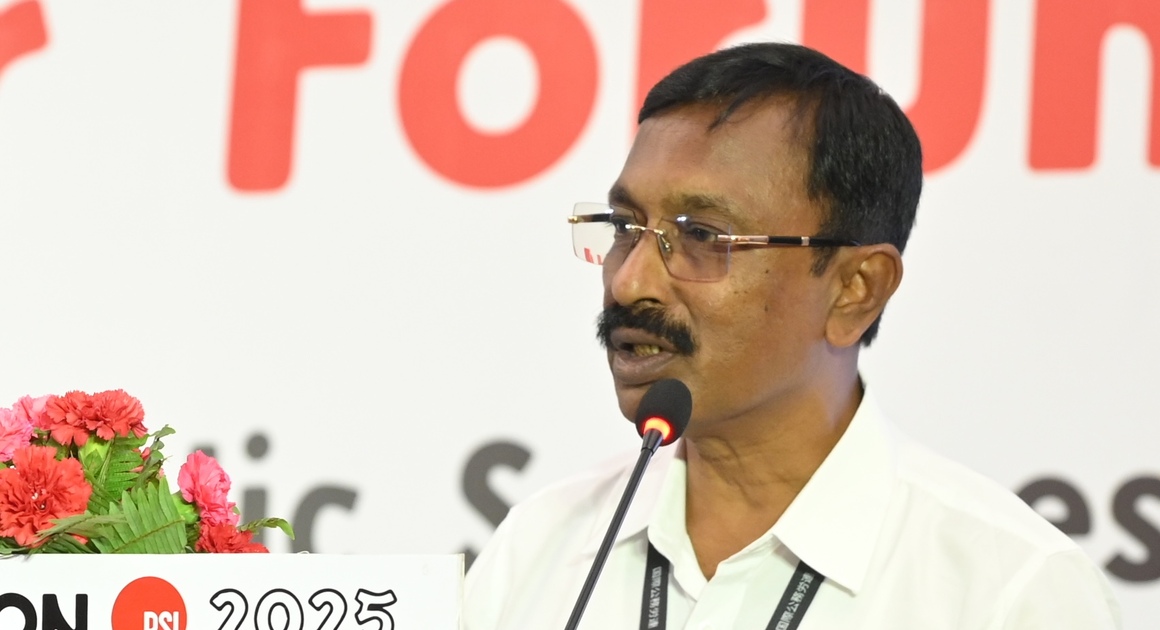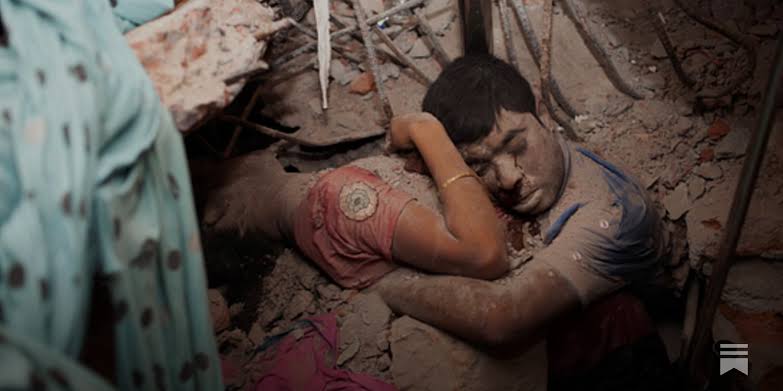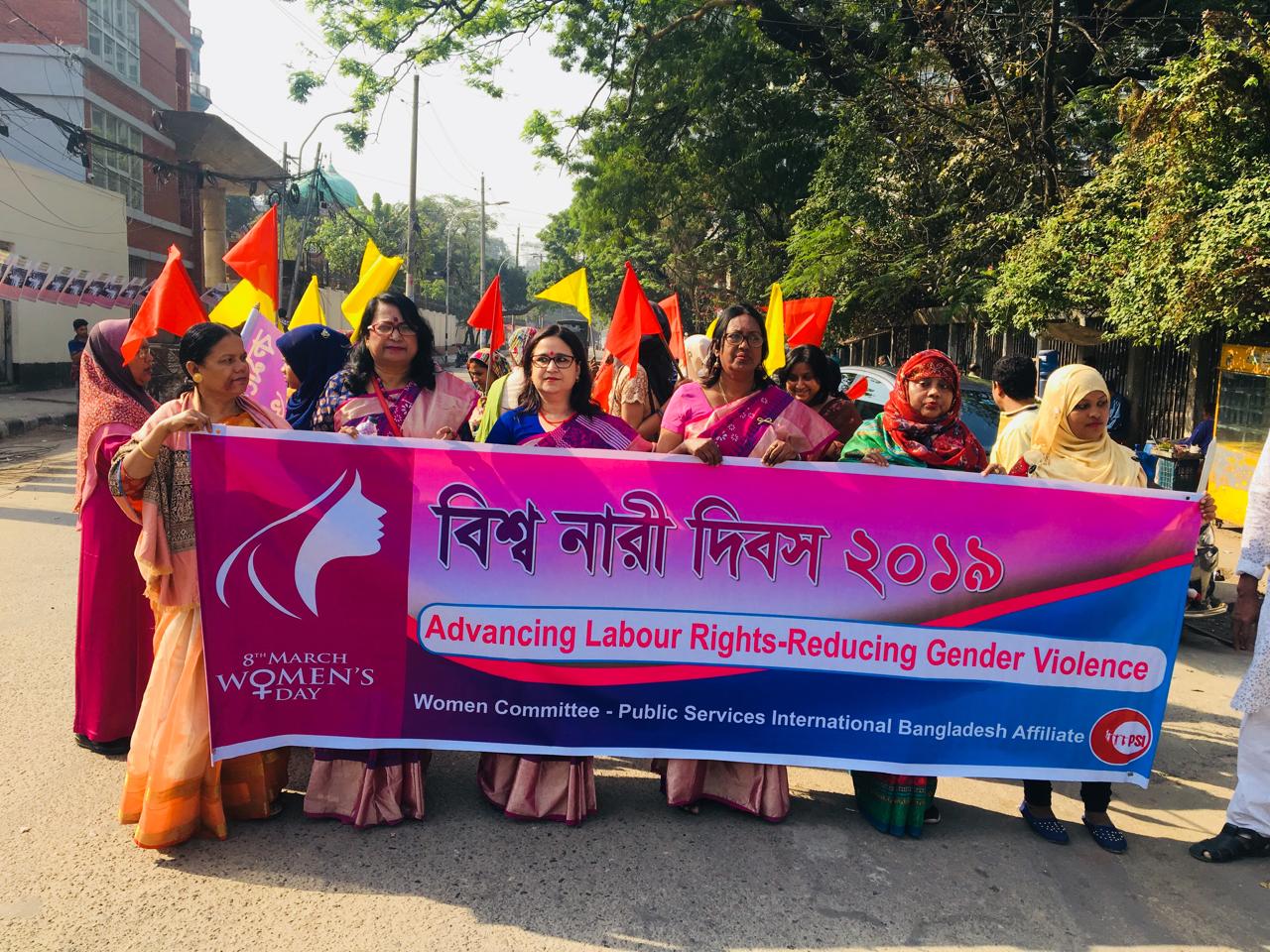Trade Union Win Workers Win Ratification of Three Crucial ILO Conventions in Bangladesh

After years of struggle and mobilization, workers in Bangladesh pushed the country to ratify three key ILO conventions on workplace safety and protection against violence and harassment. Bangladesh has now ratified all 10 fundamental ILO conventions. Trade unions are welcoming the move but are calling for meaningful implementation.

Jyotsna Singh
In a major victory for Trade Unions, Bangladesh has ratified three significant International Labour Organization (ILO) conventions, committing to stronger protections for workers' safety, health, and dignity. The conventions signed by the interim government are:
ILO Convention 155 — Occupational Safety and Health (1981)
ILO Convention 187 — Promotional Framework for Occupational Safety and Health (2006)
ILO Convention 190 — Violence and Harassment in the World of Work (2019)
These conventions are critical for reducing workplace injuries, promoting a culture of safety, and preventing gender-based and other forms of violence and harassment in the workplace.
This ratification comes more than a decade after the Rana Plaza building collapsed on April 24, 2013, killing over 1,100 garment workers and injuring more than 2,500. The disaster became a symbol of unsafe working conditions, weak enforcement of labour laws, and the absence of accountability in global supply chains.
Mozibor Rahman General Secretary, Paschimanchal Bidyut Bitaran Sramik Karmachari Union

We welcome the ratification of the ILO conventions, but they must be implemented with vigour. Implementation must be transparent, inclusive and monitored by unions.
In the aftermath, Trade Unions intensified their demands for decent work and strengthened labour conditions. Although several reforms were announced, workers and unions argued that implementation was slow and inconsistent.
“Trade unions in Bangladesh have demanded rights for a long time. The Rana Plaza tragedy showed the urgency of meeting those demands. We welcome the ratification of the ILO conventions, but they must be implemented with vigour. Implementation must be transparent, inclusive and monitored by unions — otherwise this will remain just another signed document,” said Mozibor Rahman, General Secretary, Paschimanchal Bidyut Bitaran Sramik Karmachari Union, Bangladesh.
Advocating for workers’ rights at the ILO and pushing for the ratification of its conventions has been central to PSI’s work. C190 is a key focus of PSI across regions. In Bangladesh, PSI has actively supported unions through awareness- and capacity building on C190.
“Making workplace harassment-free and violence-free has been our core demand. Women should feel safe and secured where they work. We have been advocating for women’s rights and ratification of C-190 since it was adopted by ILO in 2019. It is good that the government has finally ratified it. It’s a big victory of trade unions in Bangladesh,” said Nargis Jahan, Bangladesh Women Welfare Workers Union and former member of PSI Asia Pacific’s Executive Board.

Youth in Bangladesh has been instrumental in bringing about these measures. Young activists and young workers lead the uprising in 2024 that removed the government and created the conditions for progress in labour rights. They must also be at the forefront of the movement to make these commitments a reality.
“The ratification of these three conventions is more than a policy milestone for young workers. In Bangladesh, every year around 2.2 million young workers come into the world of work in precarious, unsafe or exploitative conditions, with little voice and scant protection. Ratifying these conventions means committing to safer workplaces and an end to violence and harassment.
But ratifying is only the beginning — real progress depends on youth engagement, union leadership and accountability. Youth participation is key – from joining workplace safety committees and unions, to leading awareness campaigns and monitoring implementation. Young workers must be actively involved in turning these commitments into reality.
PSI’s Resolution 10 at APRECON-2025 says that ILO must advance labour rights and social justice in South Asia and uphold core labour conventions. Bangladesh’s example shows that progress is possible. As a young worker, it is my belief that this is the moment that should encourage all young workers around the world to participate, organize and become one of the shapers of a future of work- grounded on equality, security, and justice for all,” said Md. Abul Kalam Shojeeb, Member Secretary, Youth Committee, Bangladesh Pani Unnayan Board Jatiyatabadi Sramik Karmachari Union and Youth Titular for PSI AP’s Executive Committee.
Md. Abul Kalam Shojeeb Member Secretary, Youth Committee, Bangladesh Pani Unnayan Board Jatiyatabadi Sramik Karmachari Union

Youth participation is key – from joining workplace safety committees and unions, to leading awareness campaigns and monitoring implementation. Young workers must be actively involved in turning these commitments into reality.
What Has Bangladesh Ratified Before?
By ratifying C-155 and C-187, Bangladesh has ratified all of the ILO’s core conventions, which uphold fundamental labour rights The other such conventions are:
Freedom of Association and Protection of the Right to Organise (C87)
Right to Organise and Collective Bargaining (C98)
Forced Labour Convention (C29)
Abolition of Forced Labour Convention (C105)
Minimum Age Convention (C138)
Worst Forms of Child Labour Convention (C182)
Equal Remuneration Convention (C100)
Discrimination (Employment and Occupation) Convention (C111)
Ratifying these conventions obliges Bangladesh to draft and enforce national laws and policies on occupational safety and health. It has to address violence and harassment—including gender-based violence—in workplaces. It should also ensure worker participation through unions, safety committees and social dialogue.
